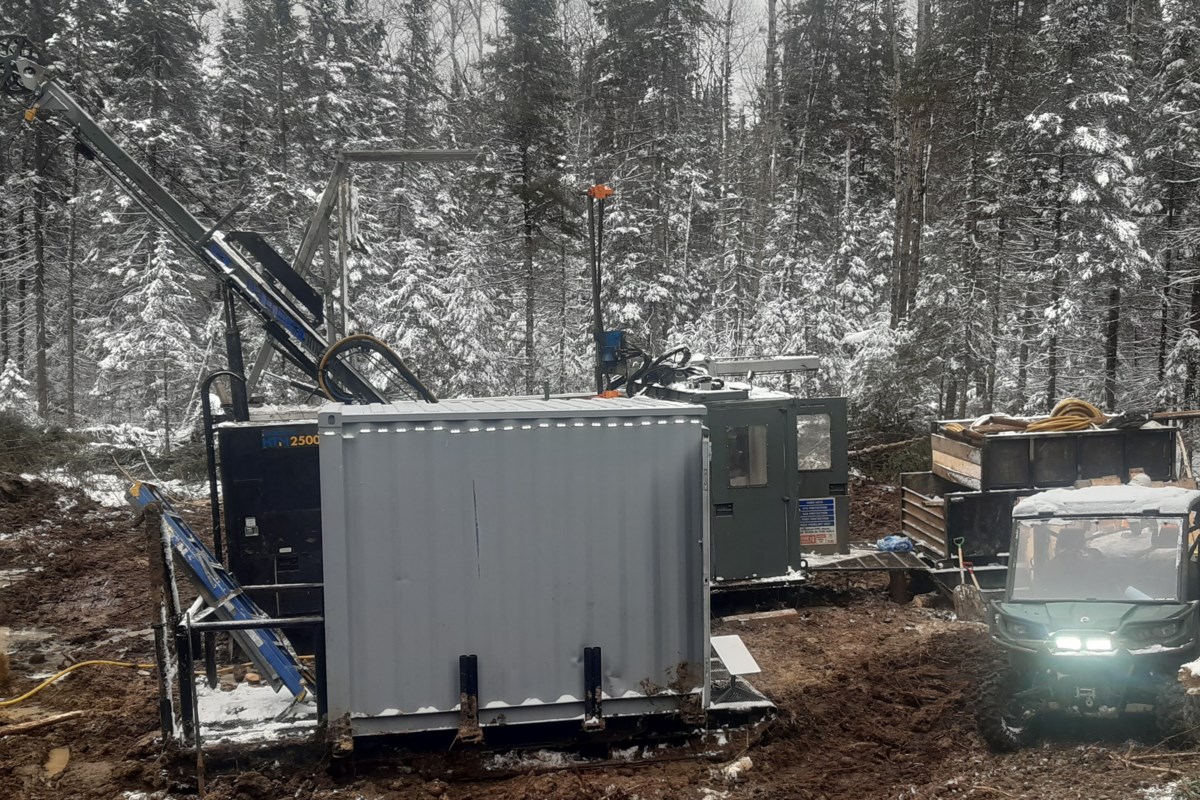McFarlane Lake Mining Limited is pleased to announce it has applied for an early exploration permit on it’s McMillan Mine and Mongowin properties
McFarlane Lake Mining Limited (NEO: MLM, OTCQB: MLMLF), a Canadian gold exploration and development company, is pleased to announce it has applied for an early exploration permit on it’s McMillan Mine and Mongowin properties located 70 kilometres west of Sudbury, Ontario (see Figure 1).
The McMillan Mine and Mill produced over 10,000 ounces of gold in the 1930’s. More recently (2000 to 2006) drilling returned high grade historical gold intercepts in areas below old mine workings. Historical drilling in drill hole MM-05-13 intersected gold grades of 7.2 grams per tonne gold over an intersection of 21.3 meters while drill hole MM-05-04 intersected 11.2 grams per tonne gold over 4.7 meters. There was no follow up drilling on these intercepts under previous ownership. The intercepts are shown in Figure 2 along with a longitudinal section of the mine which illustrates some of the past underground workings of the mine.
In addition to the McMillan Mine, McFarlane also has a significant land position in the adjacent Mongowin property. Mongowin has the past producing gold mine of Fox Lake Gold Mine which was developed next to the Fox Lake Fault (Figure 3). The Fox Lake fault runs northeast and southwest and intersects the House Lake fault. There is potential for more gold resources to be found around these two fault systems through future exploration.
The company has applied for an early exploration permit covering the areas around the McMillan Mine and the Fox Lake trend in the area near the old Majestic Mine (Figure 1). A drilling program is planned for the fall of this year including line cutting for an extension of an Induced Polarization Survey east of the McMillan mine and diamond drilling in area of the McMillan Mine to confirm historical high grade gold intersections and to potentially expand gold mineralization to the east, west and at depth (Figure 3).
Figure 1 – Regional Map
Figure 2 – McMillan Mine – Historical Longitudinal Section
Figure 3 – McMillan Lake – Proposed Diamind Drilling Exploration
Historical information
Historical information has been taken from the “Technical Report on the McMillan Gold Mine Property compiled for Garson Resources 2006, by H.R. Butler.
Compliant Resources
McFarlane has compliant gold resources within its property portfolio. In 2023 McFarlane delineated a National Instrument standard 43-101 compliant gold resource for its High Lake Property located 40 kilometres west of Kenora, Ontario near the Ontario/Manitoba border. See Table 1 for the resource statement.
Table 1: Current Purdex Zone Mineral Resource at 2.6 g/t Au cut-off
Qualified Person
The technical contents of this news release have been reviewed and approved by Mark Trevisiol, P.Eng, CEO of McFarlane. Mr. Trevisiol is a qualified person, as defined by NI43-101. However, Mr. Trevisiol is not independent of the Company by virtue of his position.
About McFarlane Lake Mining Limited
McFarlane is a gold exploration company focused on the exploration and development of its portfolio of properties. The past producing McMillan and Mongowin gold properties, located 70 km west of Sudbury, Ontario, the past producing West Hawk lake property located immediately west of the Ontario-Manitoba border, and the High Lake gold property (see Table 1 for resource statement) located immediately east of the Ontario-Manitoba border and 8 km from the West Hawk lake property. McFarlane also owns the Michaud/Munro mineral property situated 115 km east of Timmins along the so-called “Golden Highway”. McFarlane is a “reporting issuer” under applicable securities legislation in the provinces of, British Columbia, Alberta and Ontario.
Additional information on McFarlane can be found by reviewing its profile on SEDAR at www.sedar.com.
Further Information
For further information regarding this press release, please contact:
Mark Trevisiol, Chief Executive OfficerMcFarlane Lake Mining Limitedinfo@mcfarlanelakemining.com
This article was published by: Mathew Lajoie
Visit the original article here



